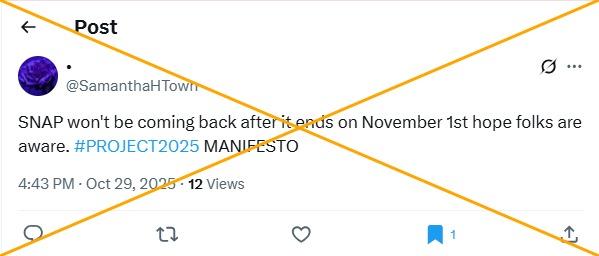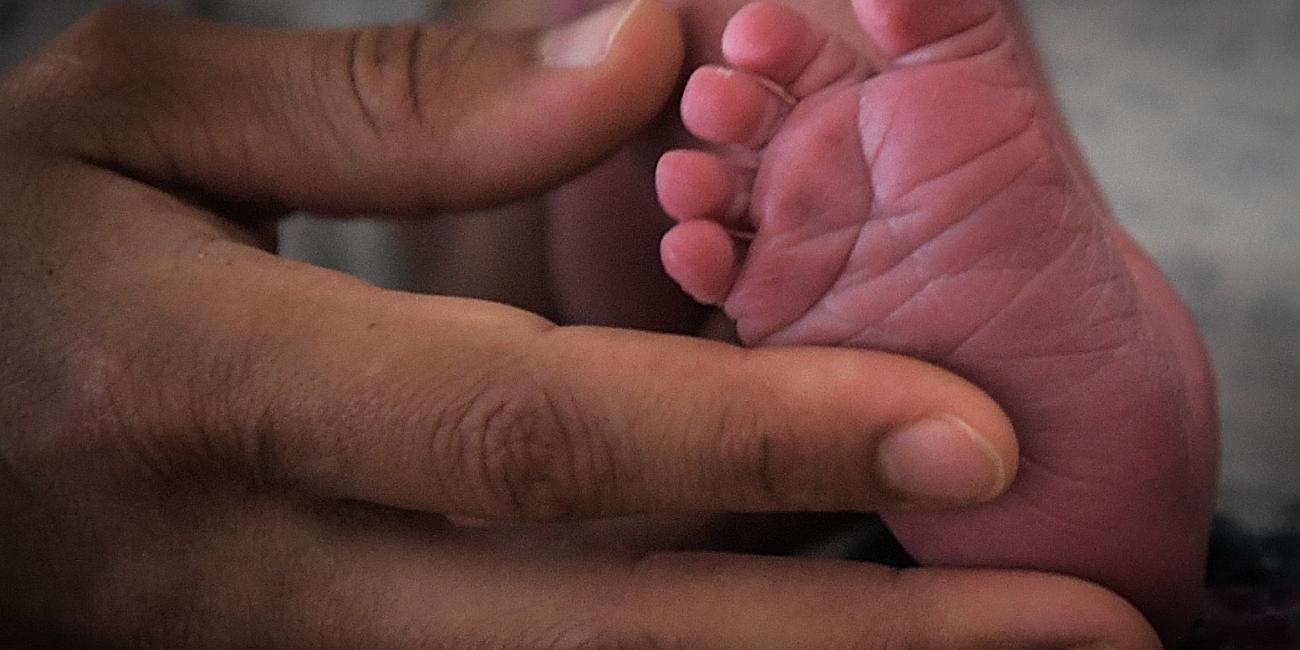
No evidence US food aid program will end permanently
- Published on November 3, 2025 at 22:30
- 2 min read
- By Mia DOUGLAS, AFP USA
As the November 1, 2025 deadline approached for a projected funding lapse of the United States' Supplemental Nutrition Assistance program (SNAP), claims spread on social media that the Trump administration would be permanently canceling federal food aid. There is no evidence for this; experts said the president would need congressional approval to eliminate SNAP and on November 3 the White House responded to federal court rulings saying partial payments will be issued from emergency funds.
"SNAP won't be coming back after it ends on November 1st," an October 29 post on X claimed.
Multiple other posts also claimed the program will end permanently, most referencing Project 2025, a policy blueprint for reshaping the federal government put out ahead of Donald Trump's election by the conservative Heritage Foundation (archived here).

The SNAP program provides financial assistance to nearly 42 million low-income people. The latest available data from USDA shows that in 2023 "the average SNAP household received a monthly benefit of $332" (archived here).
The Heritage Foundation's Project 2025 did recommend several reforms to the SNAP program including moving its administration from the US Department of Agriculture (USDA) to the Department of Health and Human Services (archived here).
It also called for strengthening work requirements for eligibility -- something put into place under the One Big Beautiful Bill signed by Trump on July 4, 2025 (archived here and here).
Trump's signature legislation followed other suggestions from the conservative think tank, including recalculating eligibility to consider how much government assistance households receive for home heating and cooling costs.
But Project 2025 did not call for the SNAP program to be permanently shuttered.
And there is no evidence the government aims to terminate the food assistance program, a power experts said does not fall solely to the executive branch.
"Ending the SNAP program would require Congressional action," Taryn Morrissey, professor of public administration at American University (archived here).
Morrissey said the SNAP program "is a very important anti-poverty program in the United States" and pointed to a study showing its association with a host of benefits for children's short and long-term outcomes (archived here).
Temporary lapse
The USDA said it would not disburse SNAP benefits as scheduled in November as a result of the government shutdown, which began on October 1.
Some 25 Democrat-run states and the District of Columbia sued on October 28 to force the administration to tap emergency funds to keep the program running. Two federal courts ruled that the Trump administration must use a $4.65 billion emergency fund toward the estimated $9 billion cost for November's payments before cutting off SNAP.
Trump indicated on October 31 on his Truth Social platform he was willing to distribute aid and on November 3 the White House said it would send partial payments to states (archived here).
Philip Wallach, a senior fellow at the American Enterprise Institute (archived here), said given that Trump is seeking to pin blame for the missed payments on Democrats, moving to shutter the SNAP program would not make political sense.
The current situation "is completely separate from (legally) ending the program," he told AFP on October 31.
Find more of AFP's reporting on misinformation about US politics here.
Copyright © AFP 2017-2026. Any commercial use of this content requires a subscription. Click here to find out more.
Is there content that you would like AFP to fact-check? Get in touch.
Contact us




